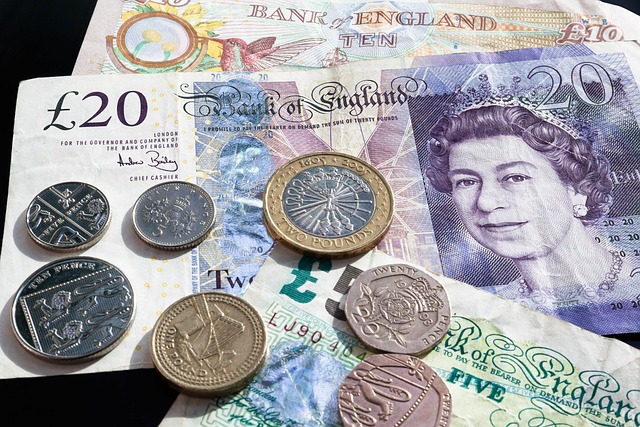Last year, Ofgem reported that energy suppliers held billions of pounds in customer credit balances, with households paying by fixed direct debit having an average credit of £3.7 billion in credit.
In 2023, Ofgem released data indicating that energy suppliers held billions in customer credit balances. Households paying through fixed direct debit had an average credit balance of £3.7 billion, reaching a peak of £5 billion in the third quarter.
At the beginning of 2023, new figures from Ofgem reveal that energy firms collectively held £8.1 billion of overpayments from customers’ bills.
Many households opt for a fixed monthly payment, accruing credit during the summer to offset higher winter bills.
Direct debits are based on forecasts made during volatile unit price periods, adding that customers can request refunds.
The system is structured to ensure customers have higher credit balances in September and October for the winter but aims for balance nearing zero in April and May for the summer.
If energy companies are holding £3 billion and making an average of 4% interest per month, they would expect to make approximately £144 million in interest over the course of a year.
Ofgem stressed that customers have the right to request refunds promptly, though some people, like June McCarthy, faced hurdles in reclaiming her money.

Mrs McCarthy’s experience, highlighted by her local MP, underscores concerns about energy firms holding onto customers’ money.
If energy companies are holding £3 billion and making an average of 4% interest per month, they would expect to make approximately £144 million in interest over the course of a year.
We here at The Best Energy Rates are energy consultant, we’ve acknowledged the benefits of building credit but noted it should reach or approach zero by April or May and if a meter reading is supplied credit should be paid back to the customer, prior to going into the warmer months of summer.
Ofgem’s reported £8.1 billion in customers’ accounts between January and March indicates either a lack of awareness of large credit balances or difficulty in obtaining refunds.
Energy UK attributed the situation to uncertainty in energy prices and government support levels, emphasizing that direct debits should be based on accurate information.
Ofgem reinforced its directives on direct debits to prevent excessive accumulation of consumer credit balances.
Although the watchdog couldn’t specify the breakdown of the £8.1 billion, it indicated that the majority likely originated from households.
Customers dissatisfied with their energy supplier’s handling of issues can lodge complaints with the Energy Ombudsman.
Northern Ireland’s energy sector operates under the oversight of the Northern Ireland Authority for Utility Regulation (NIAUR), distinct from the regulatory framework in the rest of the UK.
Previously, Ofgem had cited a figure of £8.1 billion for Gross Customer Credit Balances, encompassing various balances and policy measures.
According to Ofgem’s report, the average household credit balance for the year stood at £252, decreasing to £178 by the end of winter 2023.
The energy regulator emphasized that these figures represent households in credit, updated quarterly.
Suppliers’ Customer Credit Balances (CCBs) play a significant role in the retail energy sector.
According to Ofgem, suppliers must accurately determine fixed direct debit amounts based on current information to prevent the accumulation of excessive credit balances and enable effective bill management for customers.
Customers have the right to clear explanations of bills and the option to adjust payments as needed, with regulations being strengthened in response to past issues.
In case of supplier insolvency, measures are in place to safeguard customer credit balances, though the costs are distributed among consumers.
Compare Energy Deals
Using an energy broker to compare energy deals offers access to industry expertise, saves time, provides access to a wide range of suppliers for better rates, tailors solutions to individual needs, ensures cost savings, and offers ongoing support.
How To Get a Refund Back From An Energy Supplier?
Getting a refund from an energy supplier typically involves contacting the supplier directly, providing them with your account details and the reason for the refund request, and then following up until the refund is processed.
Having a smart meter can make the refund process smoother since it provides accurate real-time data on your energy usage, eliminating the need for manual meter readings. Additionally, smart meters can help identify any overpayments or discrepancies in your billing, making it easier to request and justify a refund from your energy supplier. However, even without a smart meter, you can still request a refund by providing meter readings to ensure accurate billing. It’s essential to keep track of your energy usage and billing statements to identify any potential overpayments and promptly contact your supplier to request a refund.
Are You In Credit With Your Energy Supplier?
Before diving into the refund process, it’s essential to understand what energy credit is and how it occurs. Energy credit happens when you pay your energy bills based on estimated usage rather than actual consumption. This can happen if your direct debit payments are set too high, or if you’ve significantly reduced your energy usage without adjusting your payment plan accordingly. As a result, you build up a surplus balance, leaving you in credit with your supplier.
Tips for a Smooth Refund Process:
To ensure a smooth refund process, consider the following tips:
- Keep track of your energy usage and account balances regularly.
- Provide accurate meter readings to your supplier to avoid billing discrepancies.
- Review your energy bills carefully for any errors or inconsistencies.
- Follow up with your supplier if you haven’t received your refund within the specified timeframe.